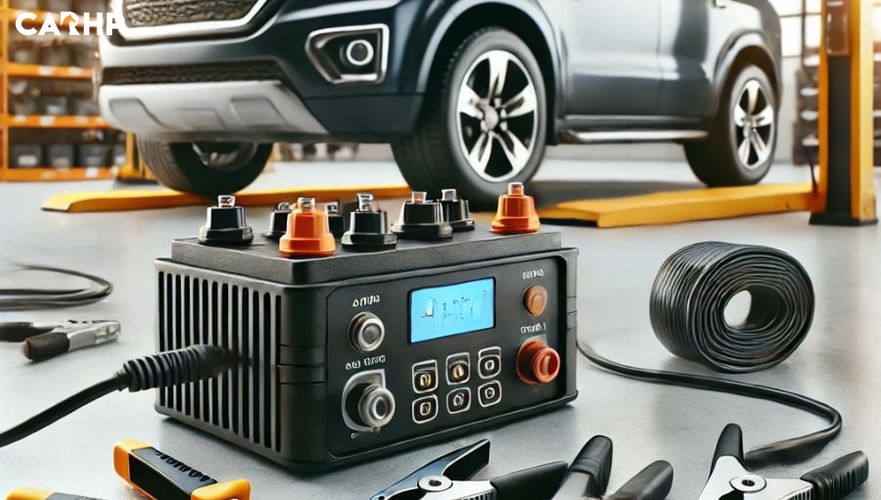Everything You Need to Know About Car Battery Chargers
Are you one of the many who are dealing with battery problems and thinking about getting a car battery charger? That is a smart move and I've been using different chargers for years and can tell you they are super useful to have around. Let me guide you through everything you need to know about car battery chargers.
Why You Should Invest in a Car Battery Charger
Having a reliable car battery charger is essential for several reasons:
- Emergency Preparedness - Never be stranded with a dead battery again
- Extended Battery Life - Proper charging maintenance can double your battery's lifespan
- Cost Savings - Avoid expensive towing services and replacement batteries
- Convenience - Charge at home at your own pace without relying on others
Types of Car Battery Chargers
1. Trickle Chargers
Perfect for long-term maintenance, these low-amp chargers (usually 1-3 amps) slowly replenish your battery and can be left connected for extended periods without overcharging.
2. Smart Chargers
My personal preference! These microprocessor-controlled units automatically adjust charging rates based on battery condition and can safely remain connected indefinitely thanks to float mode technology.
3. Fast Chargers
When time is of the essence, fast chargers (10+ amps) can get you back on the road quickly but shouldn't be used regularly as they generate more heat and potential stress on batteries.
4. Jump Starters
These portable power banks pack enough punch to jump-start your vehicle and often include USB ports, LED lights, and other emergency features.
Key Features to Look For
- Multiple Charging Modes - Look for chargers with trickle, maintenance, and recovery options
- Battery Type Compatibility - Ensure compatibility with your specific battery (standard, AGM, gel, lithium)
- Safety Features - Reverse polarity protection, spark-proof connections, and automatic shutoff
- Portability - Consider size and weight if you plan to travel with it
- Weather Resistance - Important for garage or outdoor use
How to Use a Car Battery Charger Safely
After years of experience, I've learned these critical safety tips:
- Always disconnect the battery if removing it for charging
- Connect in the correct order: positive (red) first, then negative (black)
- Ensure proper ventilation as charging can produce hydrogen gas
- Never charge a frozen, damaged, or leaking battery
- Follow manufacturer instructions for charging time and amperage settings
Top Recommended Car Battery Chargers for 2025
Best Overall: NOCO Genius10
This versatile 10-amp charger works with all battery types and includes desulfation mode to revive dead batteries.
Best Budget Option: Battery Tender Junior
Affordable, reliable, and perfect for maintenance charging at 0.75 amps.
Best Portable: HULKMAN Alpha85
A powerful jump starter that doubles as a 20-amp charger with impressive all-weather performance.
Maintenance Tips to Extend Battery Life
- Use a maintenance charger during seasonal storage
- Keep battery terminals clean and corrosion-free
- Check electrolyte levels in non-sealed batteries regularly
- Avoid extreme temperature exposure when possible
Troubleshooting Common Charging Issues
If your charger isn't working properly, check these common issues:
- Loose connections at terminal points
- Corrosion preventing good contact
- Deeply discharged battery (may need specialized recovery mode)
- Incorrect charger settings for your battery type
Conclusion
A quality car battery charger is one of the most valuable tools any vehicle owner can have. Whether you're maintaining a classic car, preparing for winter storage, or simply want peace of mind for emergencies, the right charger will pay for itself many times over.

